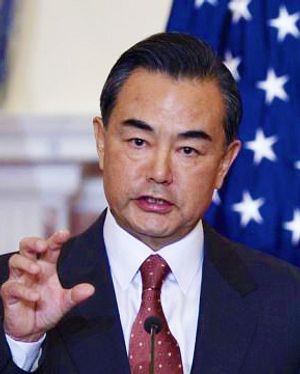Following the conclusion of Foreign Minister Wang Yi’s trip to India on Tuesday, the Chinese foreign ministry stated that the visit was of “great significance.” The foreign ministry emphasized the importance China’s leaders place on their country’s relationship with India. The visit was particularly notable for being the first official interaction between the governments of India and China since India elected a right-wing government led by the pro-business strongman Narendra Modi. Wang, who traveled to New Delhi as President Xi Jinping’s “Special Envoy,” called on Modi on Tuesday. Wang additionally spoke with a range of leaders in the newly elected government of India, including Indian External Affairs Minister Sushma Swaraj.
As I wrote yesterday for The Pulse, Wang’s trip was heavy on friendly rhetoric (as most Chinese diplomatic visits tend to be), but was also notable for his insistence specifically on how glad China was to have Modi leading India. Wang referred to Modi as an “old friend” of China’s and said that his election injected “new vitality into an ancient civilization.” Furthermore, he said that closer ties between India and China would “contribute to the national resurrection” of both countries.
On Tuesday, Chinese foreign ministry spokesperson Hua Chunying corroborated Wang’s statements. “From this visit, we know that Sino-India relation is now in a new age of gearing up,” she said. “I believe that Foreign Minister’s visit sent the following messages, that is, Chinese leaders pay attention to growing relations with India, common interests between the two countries far outweigh disputes. … We are natural partners rather than rivals and the Chinese and Indian dream integrate with each other, so we should build closer development partnership with each other,” she added.
After highlighting the economic synergies between India and China, Hua noted that “[China believes] that foreign minister Wang Yi’s visit to India at this time is of great significance. We expect to make joint efforts with India to bring our amicable and friendly relations with India to a new high.” “We believe that the development of Sino-India relations are not only in the benefits of the two people but will also help peace, stability and development of the region and beyond,” she said.
So far, it seems that China is attempting a sort “reset” with India following Modi’s electoral victory. China regularly prefers to shelve disputes with neighboring countries, instead focusing on economic cooperation, which is often pitched as mutual beneficial. So has been the case with Wang’s trip to India. Just 14 months ago, Chinese troops crossed the disputed border, known as the Line of Actual Control, and entered India-administered Kashmir, sparking a stand-off that lasted three weeks. India’s last government signed a Border Defense Cooperation Agreement (BDCA) with China last October that was intended to reduce misunderstandings on the border between the two countries. While Indian leaders (and the media) seemed to have responded positively to Wang’s overtures, many in India remain deeply skeptical of China owing to the legacy of the 1962 war.
For Beijing, it seems rather odd that it has chosen to pursue a reset in relations with the election of the national Bharatiya Janata Party. For instance, if a stand-off similar to last April’s incident were to have occurred under Modi’s government, it is less certain that India would have acted with the same sort of restraint (the stand-off involved no actual military altercations). It could be possible that China sees immediate benefits in warming relations with India given its cooler relations with Japan, the Philippines, and Vietnam. Additionally, by giving the Modi government reasons to work with China on contentious issues, China may be able to slow down the convergent relationship between India and Japan that is poised to grow stronger during Modi’s tenure.

































